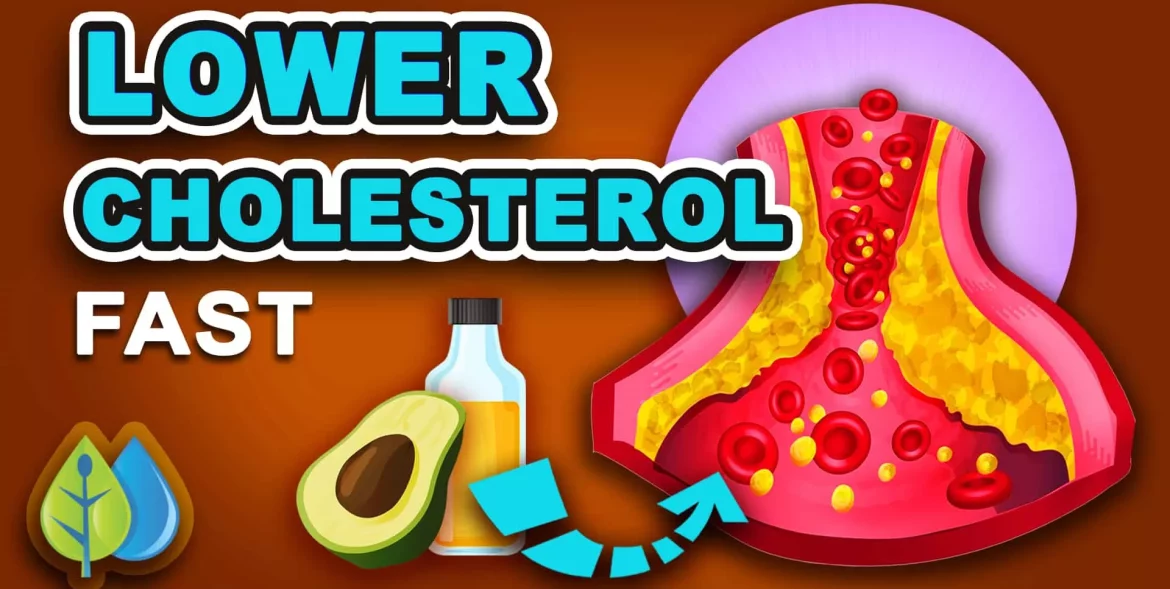Cholesterol management is a critical aspect of cardiovascular health. High cholesterol levels, especially low-density lipoprotein (LDL) cholesterol, are major risk factors for heart disease and stroke. While long-term lifestyle changes are crucial for sustained cholesterol control, there are strategies to make rapid improvements in cholesterol levels over a short period, such as 7 days. This article delves into actionable steps individuals can take to lower their cholesterol levels effectively within a week.
What Is Cholesterol?
Before diving into strategies for lowering cholesterol, it’s essential to understand the basics. Cholesterol is a waxy substance produced by the liver and also obtained from certain foods. It plays a vital role in building cell membranes, producing hormones, and aiding in digestion. Cholesterol travels through the bloodstream in lipoproteins, with two main types being LDL (often referred to as “bad” cholesterol) and high-density lipoprotein (HDL, known as “good” cholesterol).
High levels of LDL cholesterol can lead to plaque buildup in the arteries, narrowing them and increasing the risk of cardiovascular events. On the other hand, HDL cholesterol helps remove LDL cholesterol from the bloodstream, reducing the risk of plaque formation.
SEE ALSO: Can Cholesterol Be Reduced by Diet And Exercise?
Quick Tips for Lowering Cholesterol
While significant reductions in cholesterol typically require sustained efforts over time, there are steps you can take to make noticeable improvements in just seven days. These strategies encompass dietary modifications, physical activity, and lifestyle changes.
1. Adopt a Heart-Healthy Diet
Focus on consuming foods rich in soluble fiber, such as oats, legumes, fruits, and vegetables. Soluble fiber helps lower LDL cholesterol by reducing its absorption in the bloodstream.
Incorporate sources of healthy fats, including avocados, nuts, seeds, and fatty fish like salmon or mackerel. These foods provide omega-3 fatty acids, which are beneficial for heart health.
Limit saturated and trans fats found in fried foods, processed snacks, fatty cuts of meat, and full-fat dairy products. These fats can raise LDL cholesterol levels.
Choose lean protein sources like poultry, fish, tofu, and legumes instead of red meat or processed meats, which can contribute to elevated cholesterol.
2. Increase Physical Activity
Engage in at least 30 minutes of moderate-intensity aerobic exercise daily. This could include brisk walking, cycling, swimming, or dancing.
Incorporate strength training exercises at least two days a week to build muscle mass, which can help improve cholesterol levels.
Physical activity not only aids in weight management but also boosts HDL cholesterol while lowering LDL cholesterol and triglycerides.
3. Quit Smoking
Smoking is a significant risk factor for heart disease and can lower HDL cholesterol levels while raising LDL cholesterol.
Quitting smoking can lead to rapid improvements in cholesterol levels and overall cardiovascular health.
4. Limit Alcohol Intake
Excessive alcohol consumption can contribute to high triglyceride levels and lead to weight gain, both of which are detrimental to cholesterol levels. Limit alcohol intake to moderate amounts, if consumed at all.
5. Manage Stress
Chronic stress can contribute to unhealthy behaviors like overeating, poor food choices, and physical inactivity, all of which can impact cholesterol levels. Practice stress-reducing techniques such as meditation, deep breathing exercises, yoga, or engaging in hobbies you enjoy.
6. Stay Hydrated
Drinking an adequate amount of water daily supports overall health, including cardiovascular health. Aim for at least eight glasses of water per day, and choose water over sugary beverages or excessive caffeine.
7. Consider Supplements
Some supplements, such as plant sterols or stanols, may help lower LDL cholesterol levels when taken as part of a heart-healthy diet.
However, always consult with a healthcare professional before starting any new supplements, as they can interact with medications or have adverse effects in certain individuals.
Monitoring Progress And Seeking Professional Guidance
While these strategies can lead to rapid improvements in cholesterol levels, it’s essential to monitor progress and consult with a healthcare provider regularly. A cholesterol test before and after implementing these changes can provide valuable insights into their effectiveness.
Additionally, healthcare professionals can offer personalized guidance based on individual health status, medications, and specific risk factors.
Conclution
In conclusion, lowering cholesterol in 7 days requires a multifaceted approach that includes dietary modifications, increased physical activity, lifestyle changes, and possibly supplementation. By following these strategies diligently and seeking professional guidance, individuals can make significant strides toward improving their cholesterol levels and overall cardiovascular health in a relatively short period.

